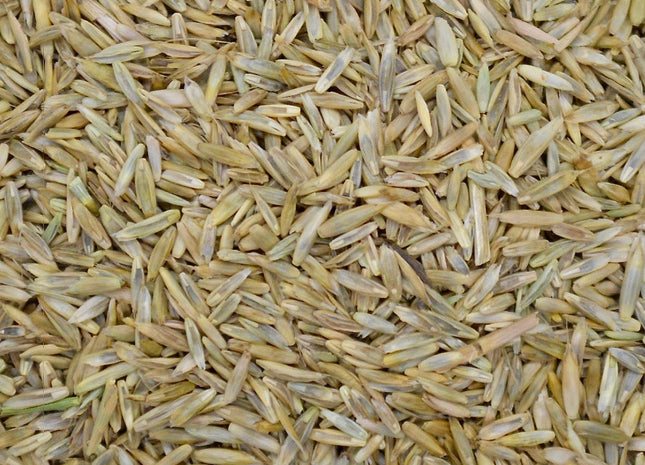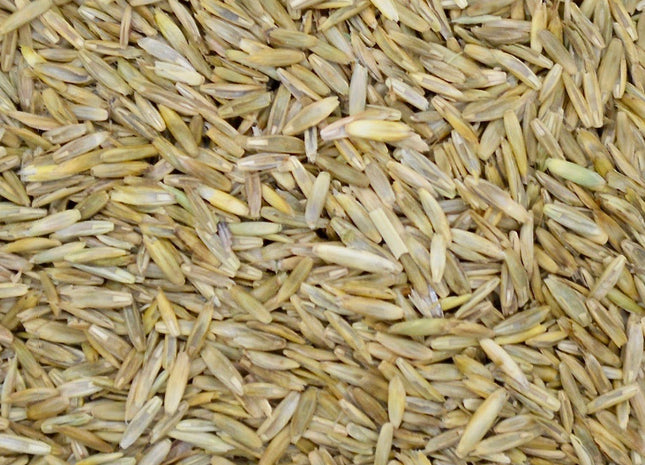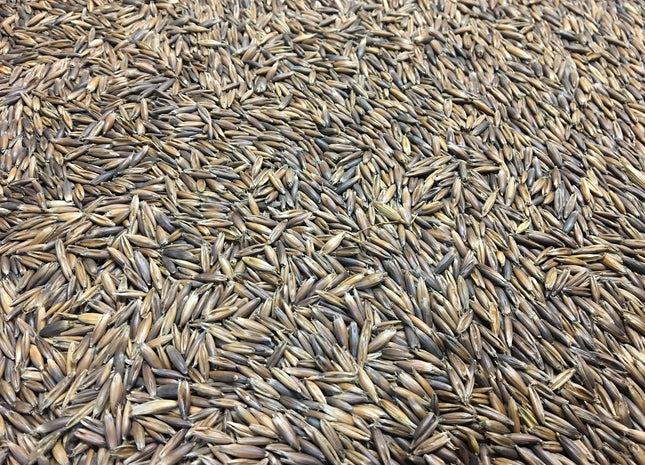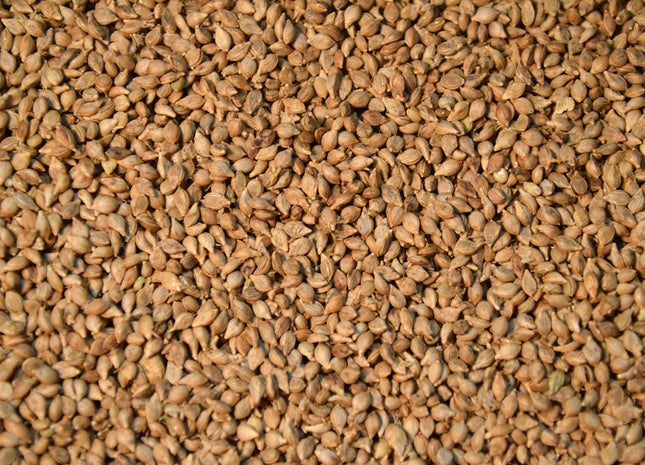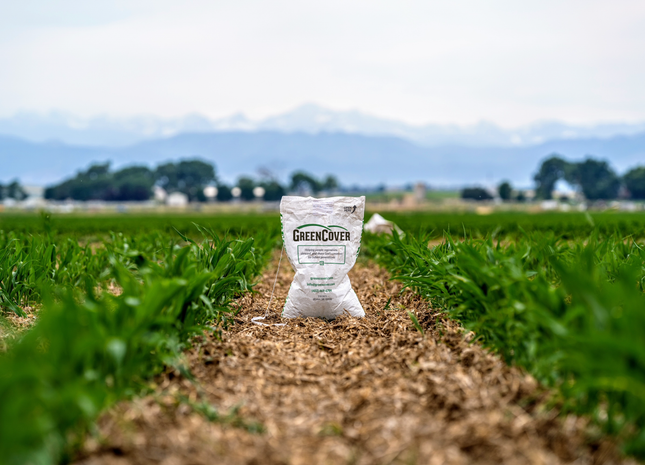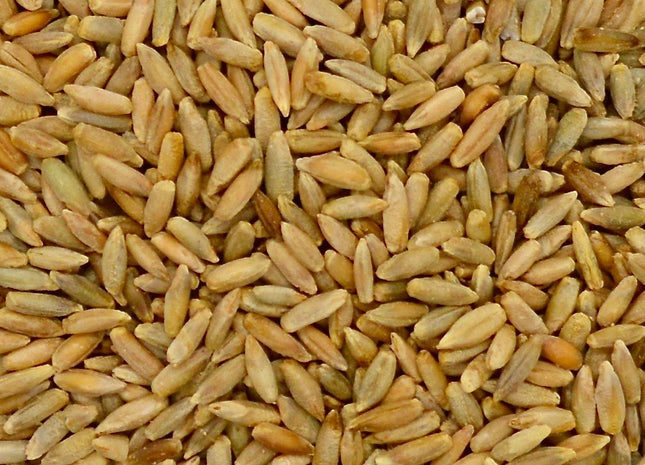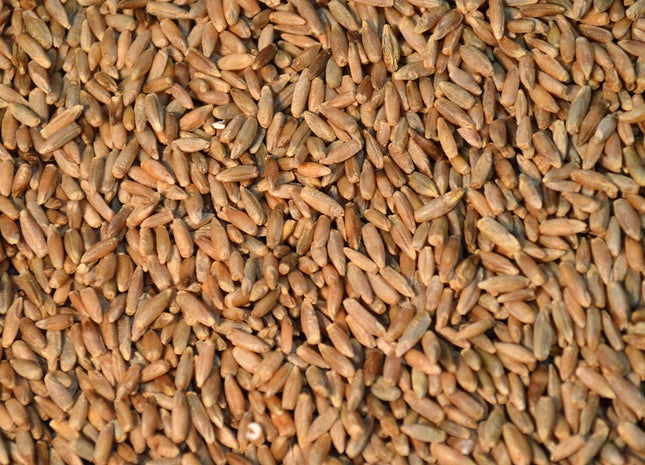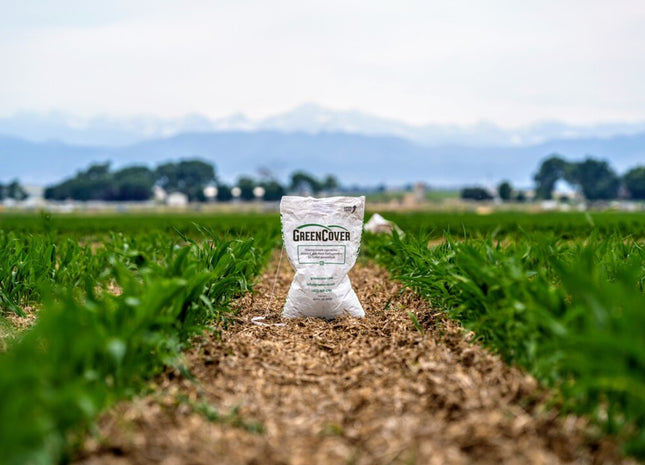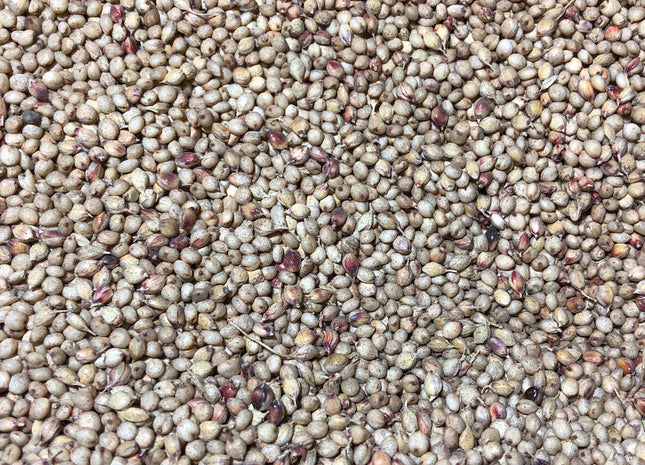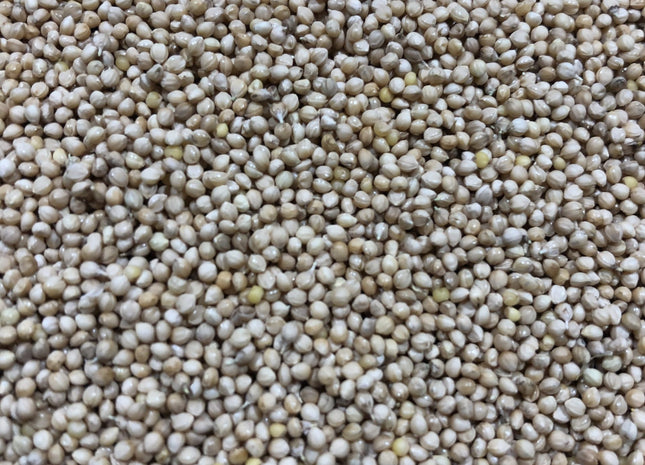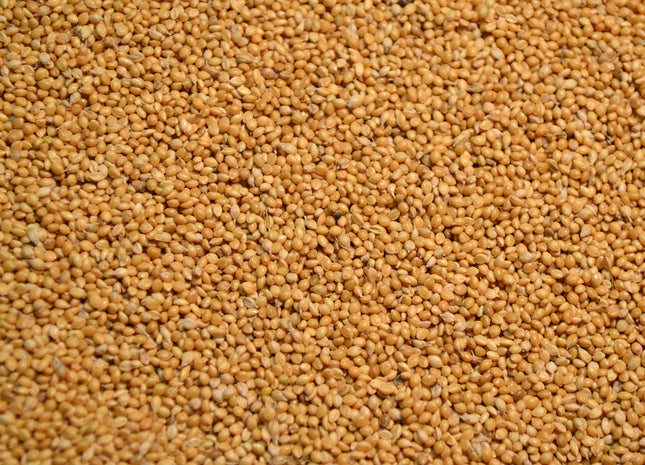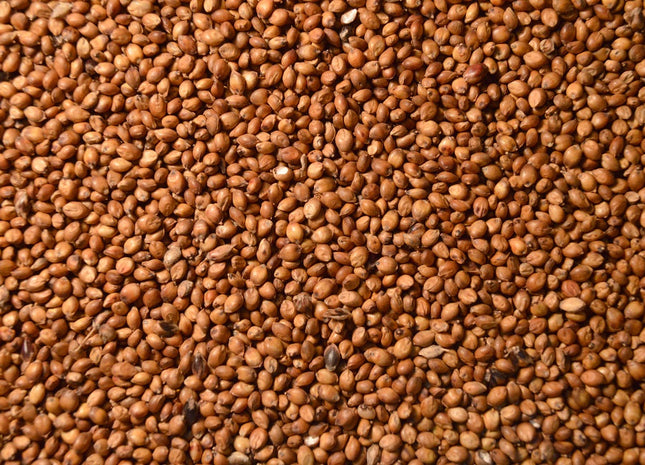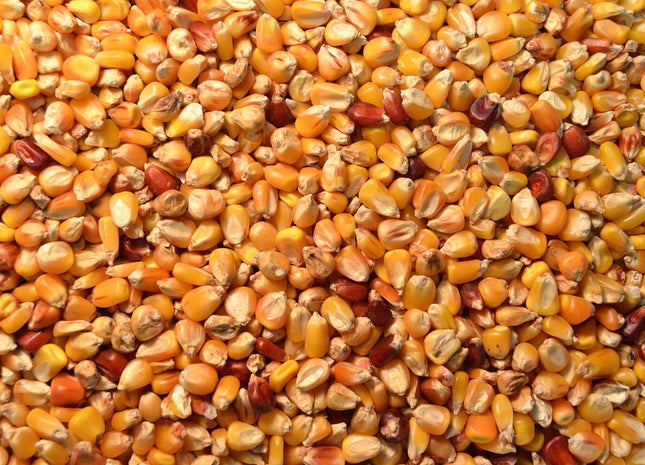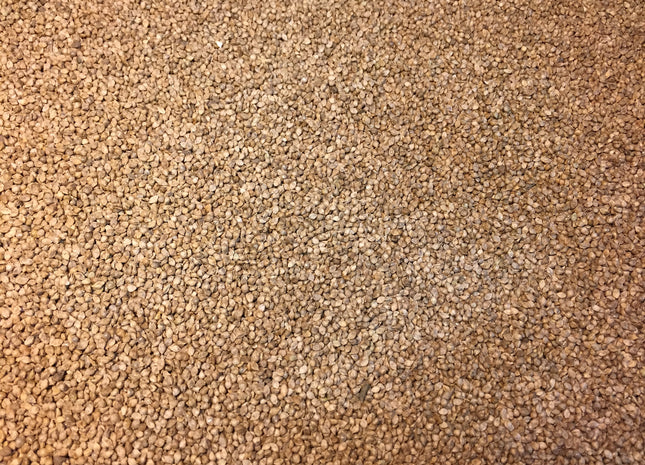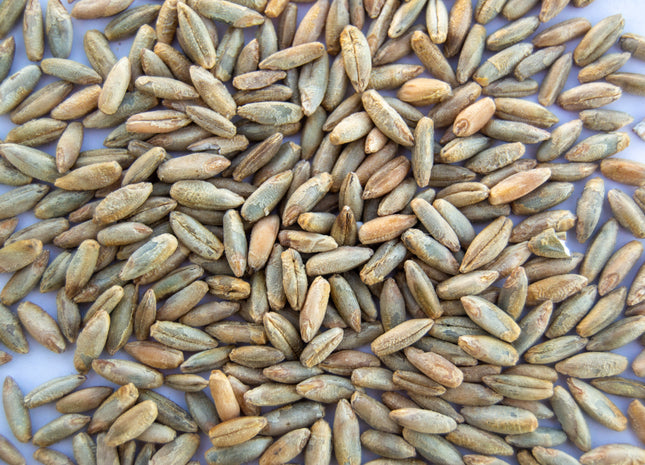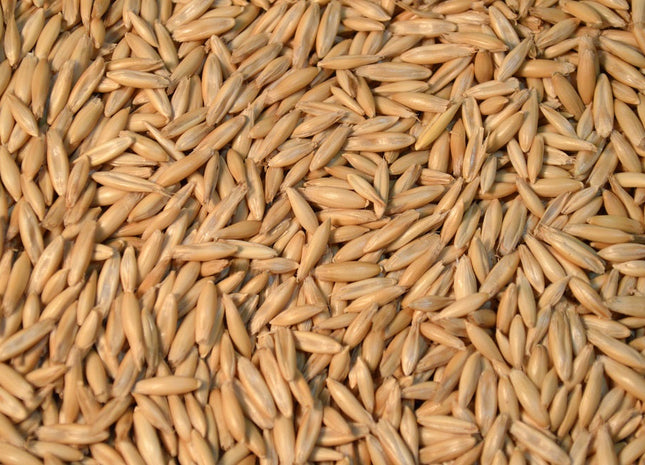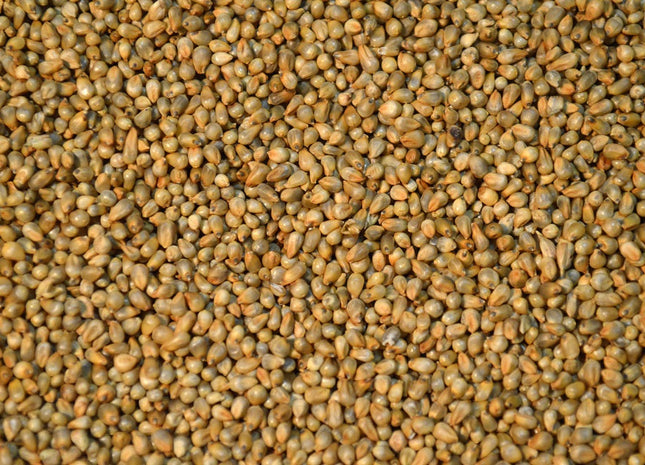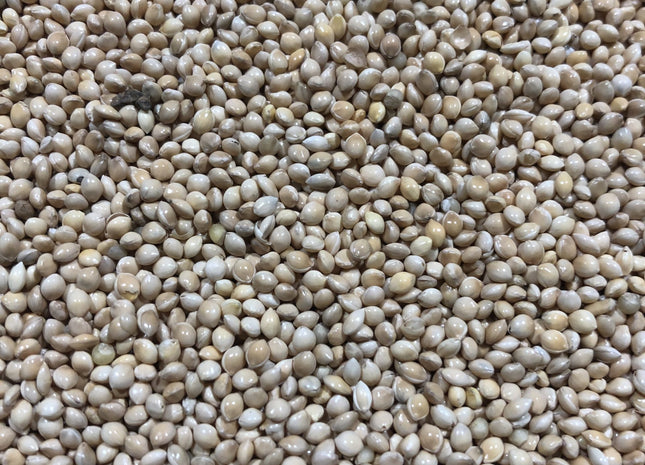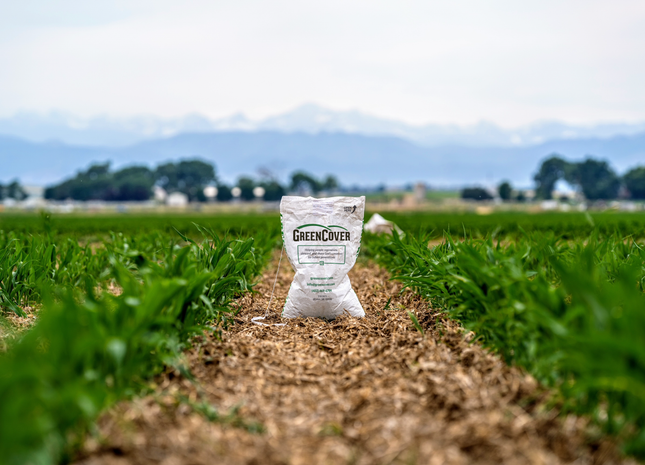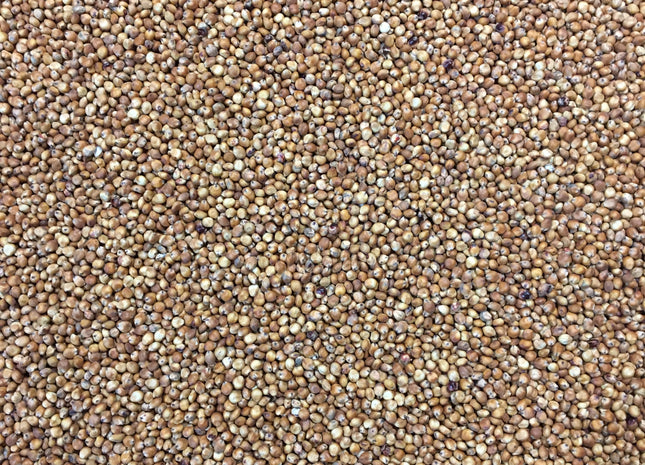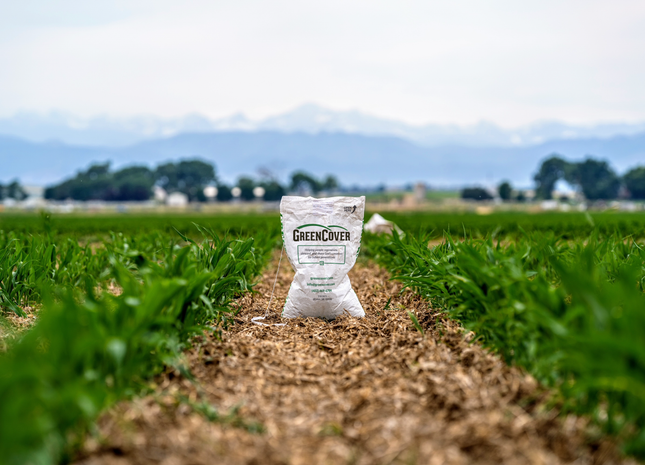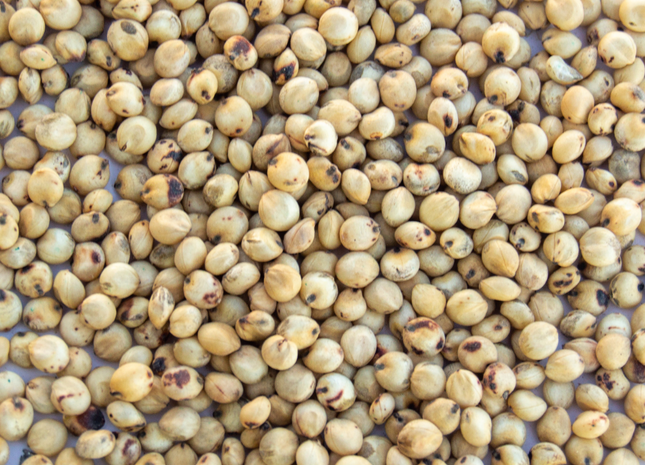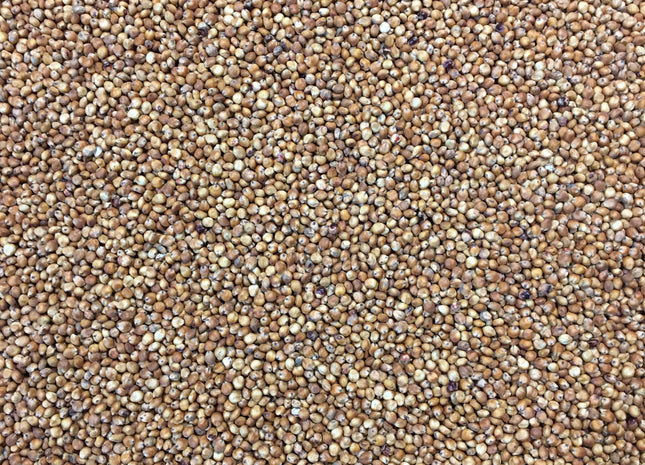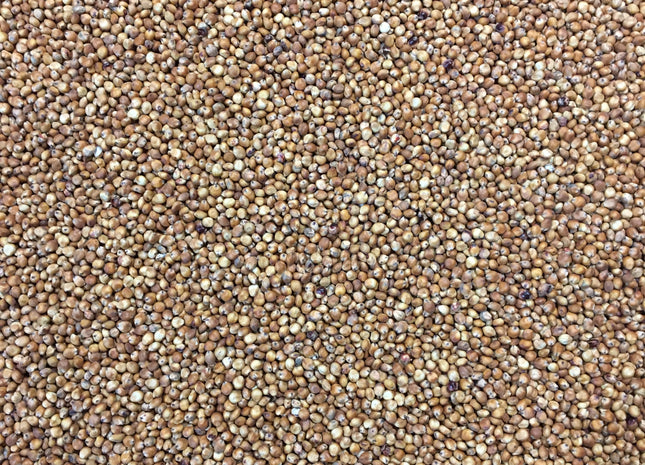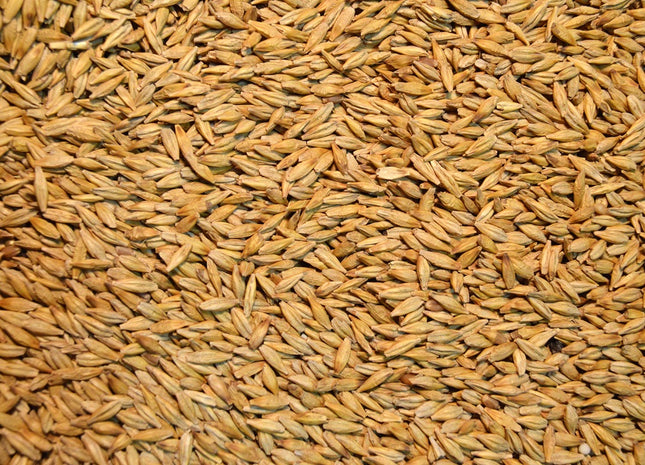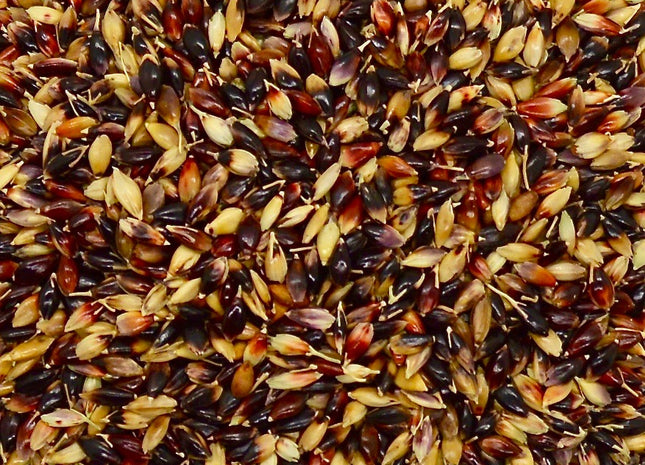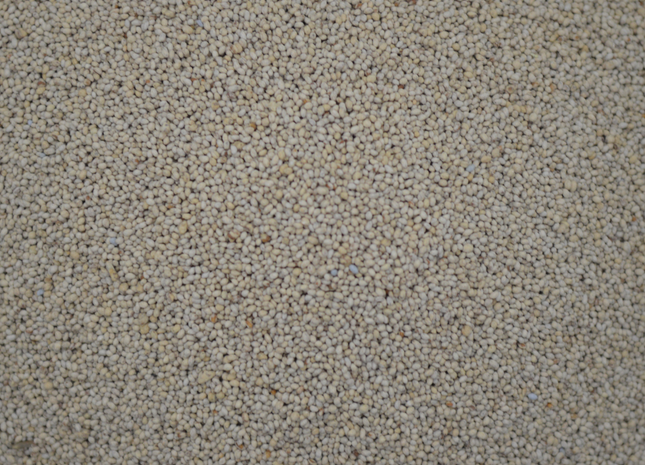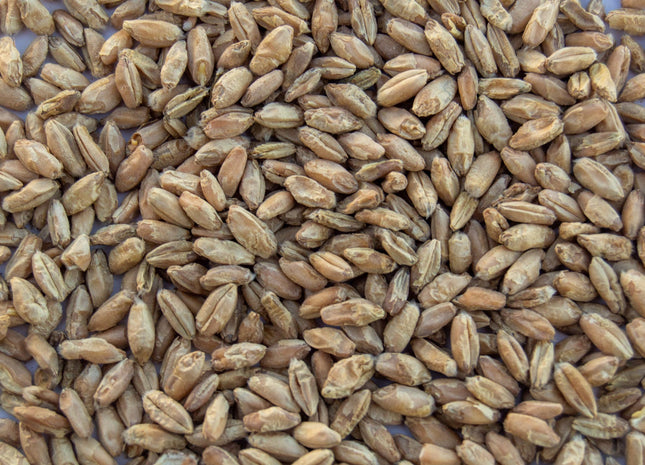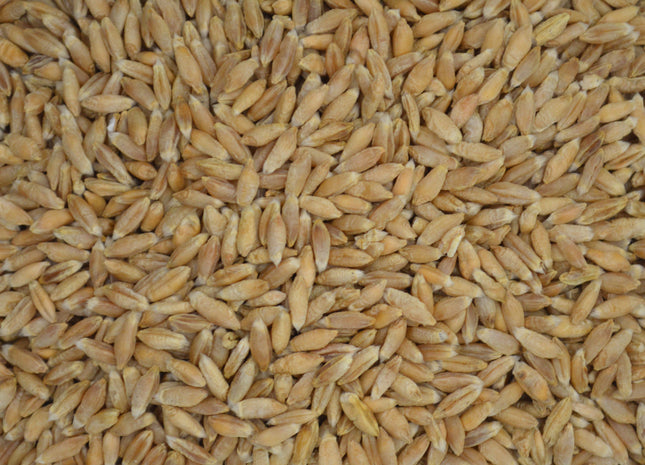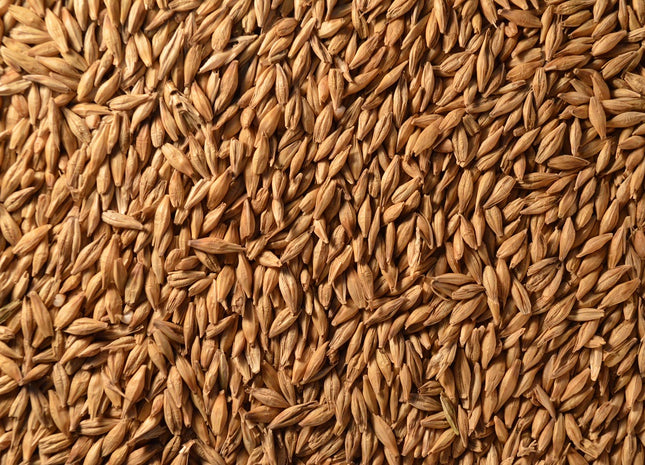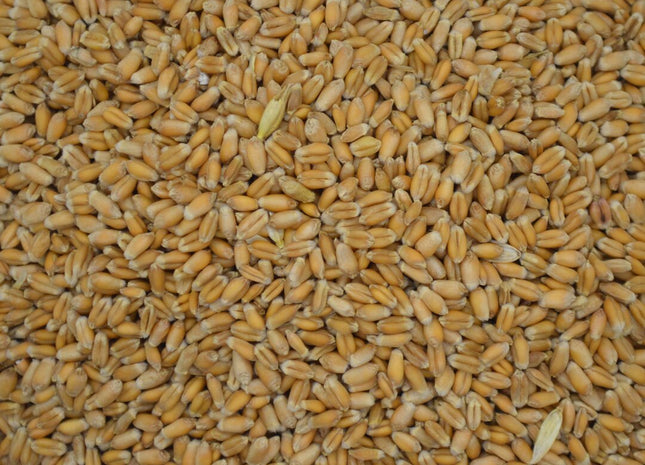Products

Annual Ryegrass (Centurion) - Diploid
Extending the grazing season while protecting and building the soil is a great benefit of this species. The biomass N content can range from 1.3-2.4% and varies depending on the amount of residual N left from the previous crop. Reports of annual ryegrass having the potential to scavenge up to 200 lbs of residual N/A/yr have been recorded. Ryegrass can be very successfully broadcast into established row crops. Winter killed ryegrass can still provide weed suppression, soil protection and trap residual N until spring. Ryegrass attracts very few pest insects that could pester the next crop. With lower needed seeding rates per acre you will spend less on freight and your applicator can remain in the drill or in the air longer. Annual ryegrass has deep roots, but when considering it for more northern areas, it must be established prior to hard freezing in order to have the best chance of winter survival.
from $1.00 per lb

Annual Ryegrass (Ranahan) - Tetraploid
Annual ryegrass stands out as a captivating and remarkable grass within the realm of cover crops. It offers a plethora of advantages, including winter grazing, impressive yields, and an often underrated impact on breaking through compacted soils. Notably, tetraploid ryegrass boasts rapid establishment, extended and broader leaves, but that comes with a reduced cold tolerance when compared to diploid annual ryegrass.
from $1.00 per lb

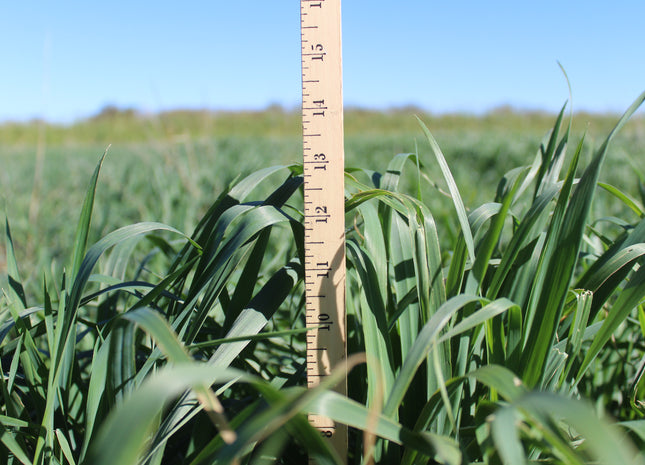
Black Oats (Cosaque)
Cosaque black oats offer several advantages over traditional oats, including superior nutritional value, digestibility, palatability, and a robust tillering capacity. They exhibit forage yields comparable to cereal rye and demonstrate good winter hardiness, often serving as a winter annual crop in southern regions. Notably, these oats thrive even in low-quality soils, contributing to soil restoration and enrichment due to their exceptional root system. A great fall grazing option across the U.S. and a great overwintering grass as you get south of Interstate-70.
from $0.32 per lb

Brown Top Millet
With extremely rapid growth, browntop millet can fill narrow growing windows to produce a nice quality forage. Under ideal conditions seed will germination within 5 days and forage or seed will be ready to harvest within two months time. Very fine stems and leaves allows plant material to dry down effectively for dry hay production. Browntop millet is an effective nurse crop, much like oats, in stabilizing erosive hill slopes and providing cover for slower growing target species to become established. Research has shown browntop helps to suppress root-knot nematode within the soil. This species is very inexpensive, providing a full stand for less than $15 an acre. With the ability to easily reseed and that seed to remain viable in the soil profile for years, makes browntop millet an excellent regenerating food plot for wildlife.
from $1.10 per lb

Cereal Rye (Cardinal)
Notice: This product may NOT be used for grain production, seed production, or mechanically harvested forage. Rye has an excellent fibrous root system that alleviates surface compaction. Rye can be successful planted later then almost any other cover crop due to its low germination and growth temperature requirements. Cereal rye is known for being the best cereal crop at retaining residual N. It's typical for a fall planted cereal rye crop to scavenge on average 25 to 50 lbs of N, with cases scavenging in excess of 100 lbs of N. The vigorous spring growth has successful weed suppression through competition and allelopathic chemicals. Rye can be terminated in the spring through the alternative methods of rolling, mowing, or crimping after boot stage. Rye will out yield any other cereal crops when planted in droughty, infertile, or sandy soils.
from $0.24 per lb

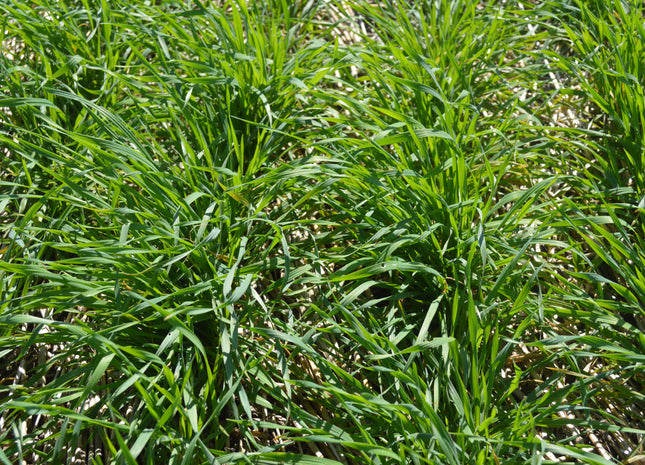
Cereal Rye (Elbon)
Cereal Rye has an excellent fibrous root system that alleviates surface compaction. Rye can be successful planted later then almost any other cover crop due to its low germination and growth temperature requirements. Cereal rye is known for being the best cereal crop at retaining residual N. It's typical for a fall planted cereal rye crop to scavenge on average 25 to 50 lbs of N, with cases scavenging in excess of 100 lbs of N. The vigorous spring growth has successful weed suppression through competition and allelopathic chemicals. Rye can be terminated in the spring through the alternative methods of rolling, mowing, or crimping after boot stage. Rye will out yield any other cereal crops when planted in droughty, infertile, or sandy soils.
from $0.24 per lb

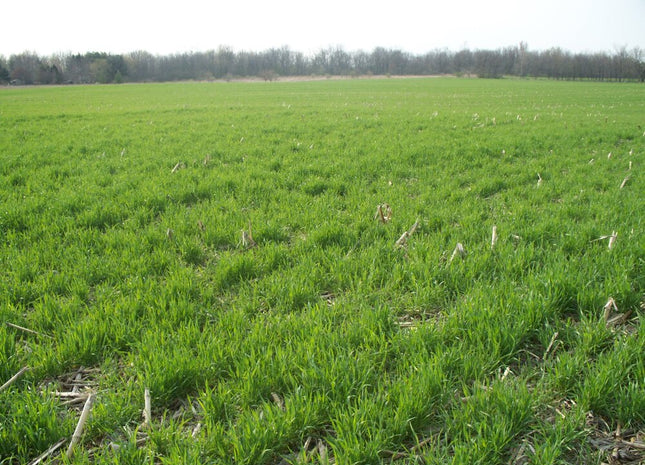
Cereal Rye (Hazlet)
Cereal Rye has an excellent fibrous root system that alleviates surface compaction. Rye can be successful planted later then almost any other cover crop due to its low germination and growth temperature requirements. Cereal rye is known for being the best cereal crop at retaining residual N. It's typical for a fall planted cereal rye crop to scavenge on average 25 to 50 lbs of N, with cases scavenging in excess of 100 lbs of N. The vigorous spring growth has successful weed suppression through competition and allelopathic chemicals. Rye can be terminated in the spring through the alternative methods of rolling, mowing, or crimping after boot stage. Rye will out yield any other cereal crops when planted in droughty, infertile, or sandy soils.
from $0.24 per lb

Forage Sorghum (Sorgrow D120 BMR Brachytic Dwarf)
This Brachytic Dwarf Forage Sorghum brings a jump in yield potential. Excellent standability, top-notch quality feed and now featuring our Aphix SCA tolerance. This is a benchmark of all high-yielding forage sorghum products in the lineup. If you need a product to push the limits of yield and provide superb agronomics, this is the one to try.
from $2.30 per lb

Forage Sorghum (Sweet Cane Max MS)
Sweet Cane Max is a medium maturity, male sterile, forage sorghum. This hybrid fits well in high-quality forage production or grazing operations. It has superior standability when compared to other hybrids. Sweet Cane should be used in single cutting/grazing or winter grazing scenarios. When drying conditions are favorable it can be used for hay. Usually it is cut once the plant has headed out for highest sugar content or used for winter stockpile grazing. Sweet Cane will not produce grain unless pollinated with other sorghums, so isolation is recommended to protect sterility.
from $1.10 per lb

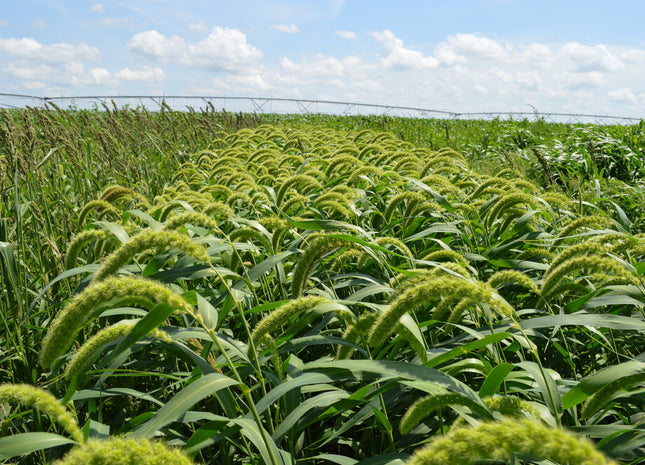
Foxtail Millet (White Wonder)
White wonder foxtail millet is used primarily for hay production. The stem is not as fine as Golden German Millet but it will get taller in height, approximately three feet, given adequate moisture. Expect to cut hay in approximately 50-55 days after planting. Windrow when heads begin emerging from the boot. Foxtail millet is also a great addition to summer grazing or wildlife mixes.
from $0.80 per lb

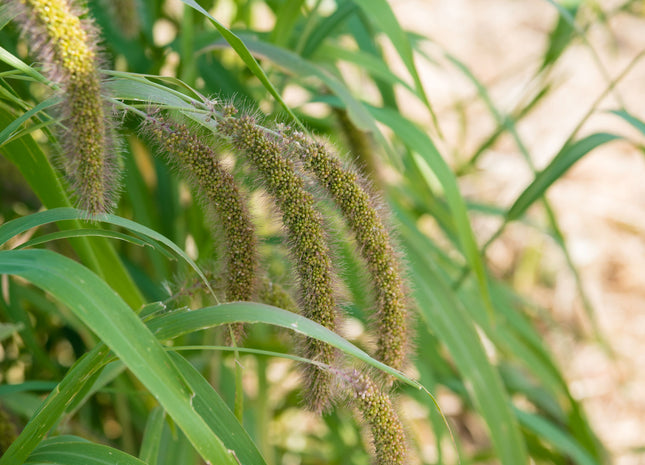
German Millet (Golden)
German millet is a warm season grass that can be planted earlier than sorghum sudan or pearl millet. Though it is not as productive as the aforementioned grasses, german millet makes a cost effective hay crop, ready for cutting about 55-60 days after planting. It does not have good regrowth which lends itself well to establishing the next crop without lingering competition after haying occurs.
from $0.75 per lb


German Millet (Strain R)
German millet is a warm season grass that can be planted earlier than sorghum sudan or pearl millet. Though it is not as productive as the aforementioned grasses, german millet makes a cost effective hay crop, ready for cutting about 55-60 days after planting. It does not have good regrowth which lends itself well to establishing the next crop without lingering competition after haying occurs.
from $0.90 per lb

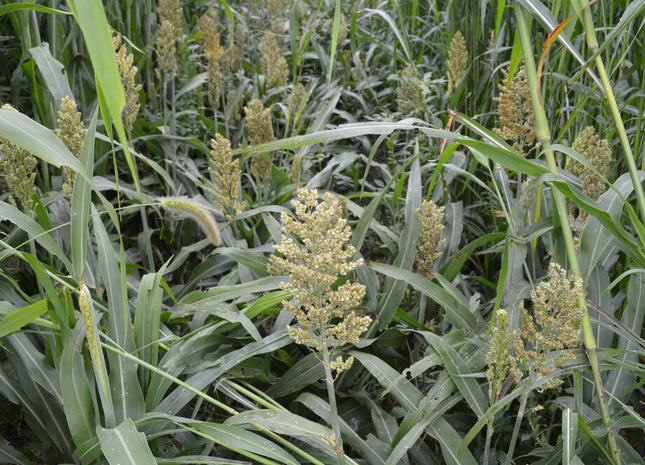
Grain Sorghum (Food Plot)
Grain sorghum provides an excellent opportunity for feeding wildlife. The grain heads, which mature in late summer to early fall will attract the wildlife species and provide superior nutrition. Grain sorghum is an excellent option for upland birds in particular.
from $3.05 per lb

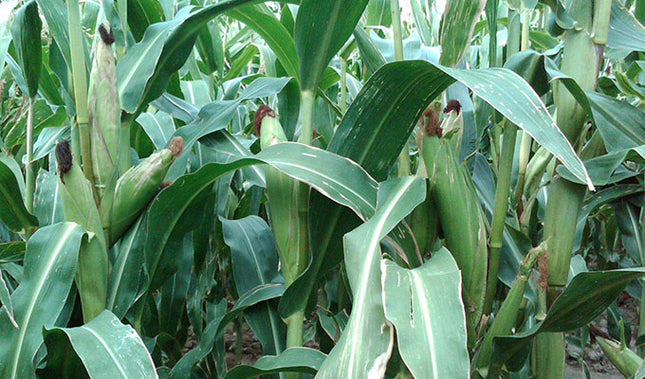
Grazing Corn (Solargraze BMR)
Grazing Corn is a high quality warm season annual option which is especially useful in late summer as the nights begin to cool off. Corn will thrive with warm days and cool nights, whereas sorghum sudan prefers hot days and warm nights. Grazing corn is highly palatable though it does not have great regrowth. For this reason it is best for a late season planting where only one grazing event is planned. It will also provide a high carbon residue to help protect soil during the winter.
from $0.65 per lb

Grazing Popcorn (Non-GMO)
This Non-GMO Grazing Popcorn is an excellent product for summer and fall grazing mixes as well as stockpile grazing mixes. Because corn tolerates cooler nights better than sorghum products, this is a great option for late summer planted grazing mixes. This seed is quite a bit smaller than the BMR corns so it stays in mixes and goes through a drill better than the larger BMR corn. While it doesn't contain the BMR trait which contributes to palatability, it is a better grazing corn compared to regular field corn and it will stand through the winter better than the BMR varieties.
from $0.75 per lb

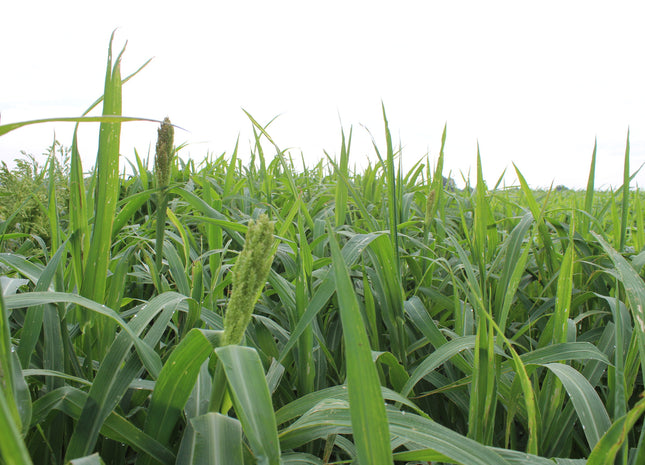
Japanese Millet
Japanese millet, known for its quick maturity, usually offers a lower forage yield compared to other millet varieties. However, it stands out for its superior post-maturity palatability when compared to foxtail millet and its impressive regrowth capabilities. Additionally, Japanese millet exhibits remarkable resilience to waterlogged soils, thriving even in standing water, making it a valuable choice for enhancing duck habitat and nourishment in food plots.
from $0.90 per lb

Organic Cereal Rye (Cardinal)
Notice: This product may NOT be used for grain production, seed production, or mechanically harvested forage. Cereal Rye has an excellent fibrous root system that alleviates surface compaction. Rye can be successful planted later then almost any other cover crop due to its low germination and growth temperature requirements. Cereal rye is known for being the best cereal crop at retaining residual N. It's typical for a fall planted cereal rye crop to scavenge on average 25 to 50 lbs of N, with cases scavenging in excess of 100 lbs of N. The vigorous spring growth has successful weed suppression through competition and allelopathic chemicals. Rye can be terminated in the spring through the alternative methods of rolling, mowing, or crimping after boot stage. Rye will out yield any other cereal crops when planted in droughty, infertile, or sandy soils.
from $0.36 per lb


Organic Elbon Cereal Rye
Note: This product is certified organic. Cereal Rye has an excellent fibrous root system that alleviates surface compaction. Rye can be successful planted later then almost any other cover crop due to its low germination and growth temperature requirements. Cereal rye is known for being the best cereal crop at retaining residual N. It's typical for a fall planted cereal rye crop to scavenge on average 25 to 50 lbs of N, with cases scavenging in excess of 100 lbs of N. The vigorous spring growth has successful weed suppression through competition and allelopathic chemicals. Rye can be terminated in the spring through the alternative methods of rolling, mowing, or crimping after boot stage. Rye will out yield any other cereal crops when planted in droughty, infertile, or sandy soils.
from $0.42 per lb
- Out of Stock


Organic Hazlet Cereal Rye
Note: This product is certified organic. Cereal Rye has an excellent fibrous root system that alleviates surface compaction. Rye can be successful planted later then almost any other cover crop due to its low germination and growth temperature requirements. Cereal rye is known for being the best cereal crop at retaining residual N. It's typical for a fall planted cereal rye crop to scavenge on average 25 to 50 lbs of N, with cases scavenging in excess of 100 lbs of N. The vigorous spring growth has successful weed suppression through competition and allelopathic chemicals. Rye can be terminated in the spring through the alternative methods of rolling, mowing, or crimping after boot stage. Rye will out yield any other cereal crops when planted in droughty, infertile, or sandy soils.
from $0.36 per lb

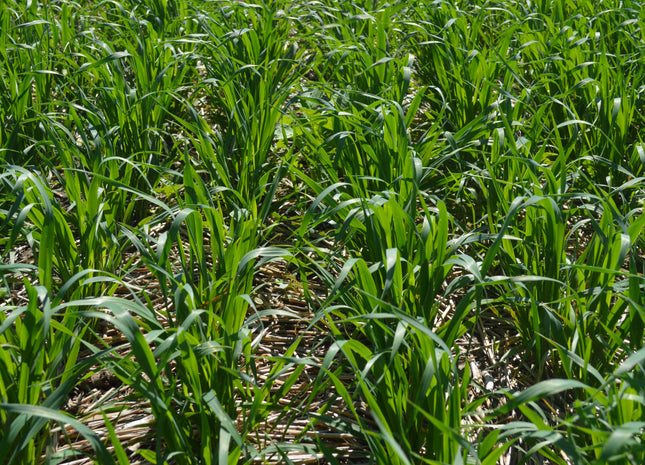
Organic Jerry Spring Oats
Note: This product is certified organic. Spring oats are an excellent choice for quick ground cover in the spring or fall. Rapid growth aids in stabilizing disturbed or bare soil from environmental conditions. Spring oats make a great addition to any spring grazing or forage mix providing ample tonnage for your livestock. Fall plantings commonly winterkill. Residue from oats suppress winter annuals and protect the soil throughout the winter and will decompose rapidly in the spring. Allelopathic chemicals released by the decomposing residue suppress weed germination for a few weeks. The high quality oat forage is more palatable than rye or wheat. Also, oat is less prone to insect problems than either wheat or barley.
from $0.45 per lb
- Out of Stock


Organic Rushmore Spring Oats (Certified)
Note: This product is certified organic. Spring oats are an excellent choice for quick ground cover in the spring or fall. Rapid growth aids in stabilizing disturbed or bare soil from environmental conditions. Spring oats make a great addition to any spring grazing or forage mix providing ample tonnage for your livestock. Oats can be easily chemically terminated and fall plantings commonly winterkill. Residue from oats suppress winter annuals and protect the soil throughout the winter and will decompose rapidly in the spring. Allelopathic chemicals released by the decomposing residue suppress weed germination for a few weeks. The high quality oat forage is more palatable than rye or wheat. Also, oat is less prone to insect problems than either wheat or barley.
from $0.50 per lb

Pearl Millet (Exceed BMR)
Pearl millet is among the best grazing or haying millet varieties. Exceed BMR Pearl Millet also offers the BMR trait allowing the animal to better digest the plant for optimal nutritional efficiency. Pearl millet is very adaptable to its growing environment with great tillering capacity, allowing for more forage and better ground coverage with less seed.
from $2.40 per lb

Pearl Millet (Green Giant Hybrid)
Green Giant Hybrid Pearl Millet is among the best grazing or haying millet varieties. Pearl millet is very adaptable to its growing environment with great tillering ability. This allows for more forage and better ground coverage with less seed.
from $1.99 per lb

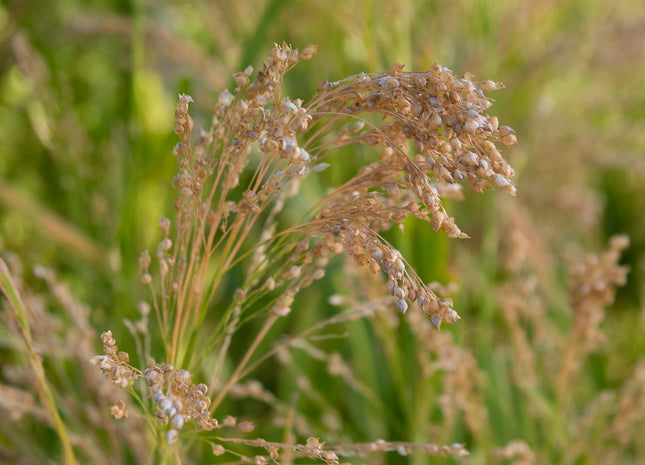
Proso Millet (White)
Proso millet is one of the most drought tolerant and cost effective annual grasses. It is the shortest growing millet though it grows taller in the northern plains than it might in the central or southern plains. Heading out in less than 60 days, this is a great plant for game bird mixes.
from $0.70 per lb

Sorghum Sudan (506x51 BMR Dwarf)
506x51 is a brachytic dwarf BMR sorghum sudangrass with a longer maturity than standard sorghum sudan hybrids. 506x51 has high tillering capacity genetics that will help with filling in row spaces when planting at wider rows. This is also a benefit when grazing, as once the plant is consumed the plant will stool. The delayed maturity benefit to this variety also pairs it nicely with longer season cover mixes that could be stockpiled. The leaf to stem ratio is very attractive for a hay harvest as well.
from $1.55 per lb

Sorghum Sudan (Cattle Cover BMR MS)
Cattle Cover offers game-changing combination of agronomics and yield. High digestibility, great palatability, and strong disease package for overall good producibility. First-in-class sugarcane aphid tolerance. Agronomics and maturity makes it a strong hybrid for hay production and grazing. Being a male sterile it can be used where you do not want the possibility of volunteering.
from $1.60 per lb

Sorghum Sudan (Endurance Aphid Tolerant BMR Dwarf)
Endurance Aphid Tolerant BMR Dwarf sorghum sudan is bred for short stature and high digestibility. Don't mistake shorter stature for less biomass, though. The dwarf trait simply shortens the length in between the leaves, called the internode length, while still growing the same number of leaves. The shorter plant makes it easier for livestock to graze and utilize efficiently.
from $1.65 per lb

Sorghum Sudan (Good Grazy BMR PPS)
This photoperiod sensitve sorghum sudan is an excellent option for many multi-cut grazing and haying situations. The BMR trait lends itself to excellent digestibility. Use this product in mixes are by itself. The PPS trait ensures that the sorghum sudan will not head out until mid-September.
from $1.75 per lb
- Out of Stock

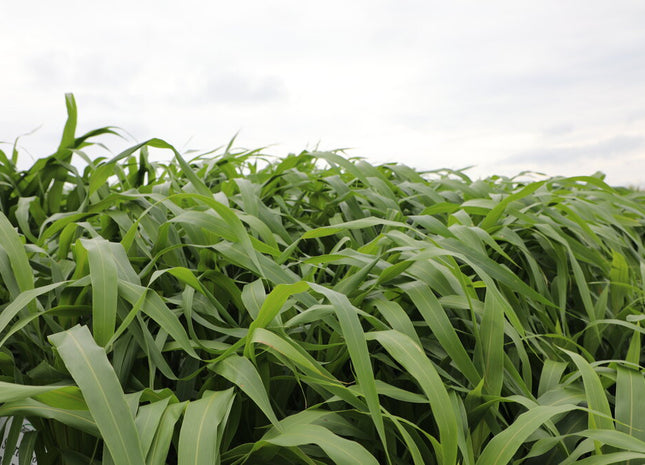
Sorghum Sudan (Short King BMR Dwarf PPS)
Short King BMR Dwarf PPS Hybrid Sorghum Sudan is an excellent option for people south of I-70 and in dry climates due to its superior drought tolerance and aphid resistance. This sorghum sudan can be used for hay production or grazing. It will maintain dwarf stature until the photoperiod sensitivity is triggered, usually mid-September.
from $1.75 per lb

Sorghum Sudan (SolarMaxx PPS)
SolarMaxx is a photoperiod sensitive sorghum sudangrass designed to be used in both diverse cover crop mixes as well as for forage production. The photoperiod sensitivity is an increased benefit to anyone who wants to have a full season plant with multi harvest possibilities. Photoperiod sensitivity means that the plant will not go reproductive until the daytime hours get to 12 hours and 20 minutes. The flexibility of these genetics gives the producer time to either react to making a harvest, or allow time for moisture to come and allow the plant to grow again. Since seedhead emergence is so late the threat of volunteer seed is little to none.
from $1.45 per lb

Sorghum Sudan (Super Cover)
Super Cover is an excellent sorghum sudan for anybody looking for a high carbon, warm season grass to help prevent erosion, build soil, and even catch snow if left through the winter.
from $1.10 per lb

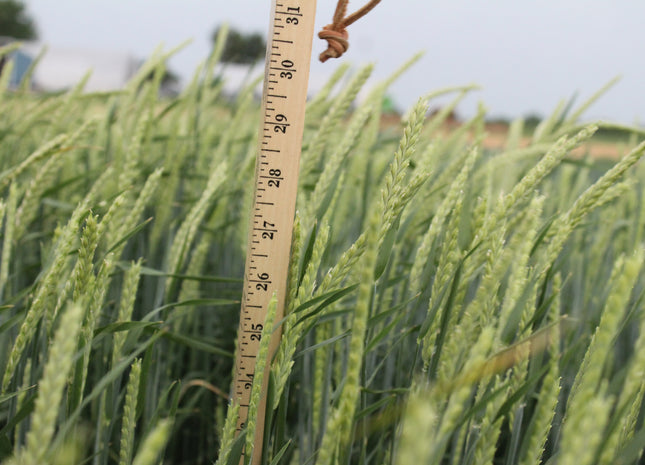
Spring Forage Barley (Lavina) - Beardless
Barley has relatively low water usage compared to other cover crop species, especially during earlier growth stages. Under poor fertility conditions, barley would be a good choice and can help render P & K available for your next crop. Barley provides a good feed quality grain that can be harvested 2-3 weeks earlier than wheat which then allows your double crop/cover to be planted sooner.
from $0.32 per lb

Spring Oats (Everleaf Falcon) - Certified
Everleaf Falcon spring oats are an improved variety of oats. Delayed heading and improved leaf density make this an excellent option for forage. These oats resist lodging, produce excellent tonnage, and provide high quality forage. The seeds are much darker than most oat varieties, maturing as a medium to dark brown seed. Everleaf Falcon oats should be used for grazing or any type of harvested forage.
from $0.35 per lb


Spring Oats (Rushmore)
Spring oats are an excellent choice for quick ground cover in the spring or fall. Rapid growth aids in stabilizing disturbed or bare soil from environmental conditions. Spring oats make a great addition to any spring grazing or forage mix providing ample tonnage for your livestock. Oats can be easily chemically terminated and fall plantings commonly winterkill. Residue from oats suppress winter annuals and protect the soil throughout the winter and will decompose rapidly in the spring. Allelopathic chemicals released by the decomposing residue suppress weed germination for a few weeks. The high quality oat forage is more palatable than rye or wheat. Also, oat is less prone to insect problems than either wheat or barley.
from $0.32 per lb

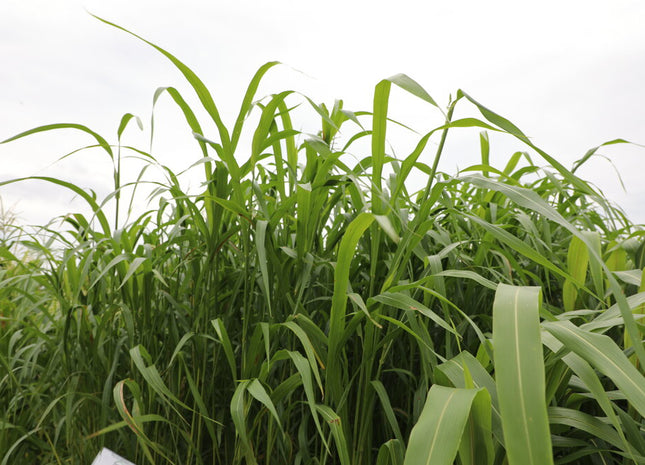
Sudangrass (Piper)
Sudangrass is a super fast growing, fine stemmed, warm season annual grass. If summer weed suppression is your goal, this would be one of the best species to accomplish that. Sudangrass is commonly crossed with sorghum to make sorghum-sudan which takes the fast, tall growing, fine stemmed traits of sudangrass and combines it with the wider leaf and oftentimes higher forage quality of sorghum.
from $1.41 per lb

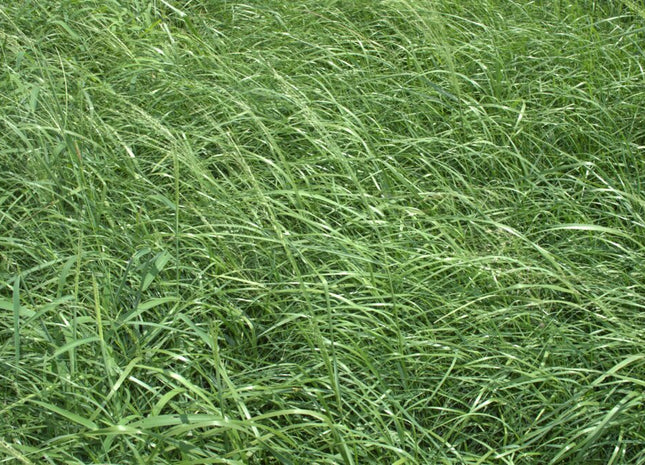
Teff Grass (HayMaker)
Teff makes a very palatable hay and is well accepted by all livestock types. Teff can be difficult to establish. It has a very tiny seed, much smaller than an alfalfa seed. It must be planted very shallow, about one-eighth of an inch deep, or seedlings will not emerge. Seedlings also need a week or so of moist soil to become established well enough to survive. This shouldn't be a problem with irrigation.
from $2.45 per lb

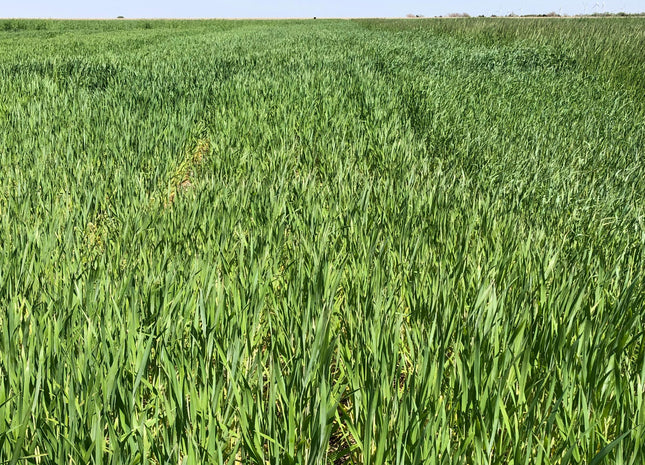
Triticale (Forage FX 1001 Triticale) - PVP
Forage FX 1001 Triticale is a beardless, high-yielding forage triticale which can produce great tonnage on dryland acres. Forage FX 1001 is also the most cold tolerant triticale we offer. The reduced awn expression makes this variety an excellent option for grazing or haying. With excellent forage yield potentials this variety gives you the tonnage and the quality you are looking for. Forage FX 1001 is known to produce high amounts of forage even in low rainfall environments such as the western Great Plains regions.
from $0.32 per lb

Triticale (SY TF 813 Triticale) - PVP
This product cannot be shipped to AZ or CA. 813 is a winter triticale variety adapted to the Southern and Central Great Plains. This triticale is awnletted meaning it has very short beards. 813 is a medium maturity, rust and wheat streak mosaic tolerant variety. It should be used for forage production and is known for excellent silage yields.
from $0.32 per lb

Winter Barley (P919) - Beardless
Barley has relatively low water usage compared to other cover crop species, especially during earlier growth stages. Under poor fertility conditions, barley would be a good choice and can help render P & K available for your next crop. Barley provides a good feed-quality grain that can be harvested 2-3 weeks earlier than wheat, which then allows your double crop/cover to be planted sooner. Compared to oats, barley produces more tillers and vegetation that will remain erect longer after termination. Carbohydrates known as monosaccharides are excreted through the roots to feed soil biology and barley has been observed to release more monosaccharides than even alfalfa.
from $0.32 per lb

Winter Wheat (GA Gore Soft Red) - Beardless
The soft red winter wheat, an awnless variety, stands at a medium height with its moderate-strength straw. Its resistance to diseases and pests makes it a nice option as a winter cover crop for grazing, weed suppression, and erosion control.
from $0.27 per lb

